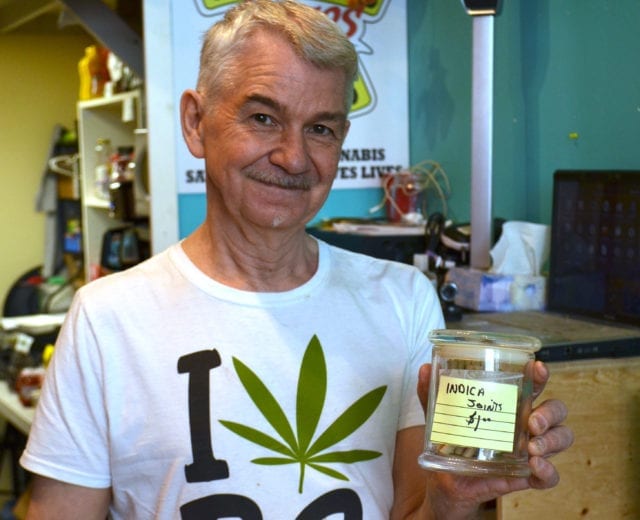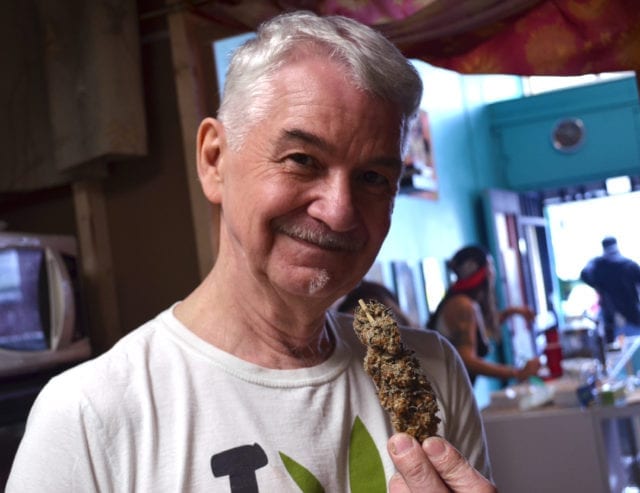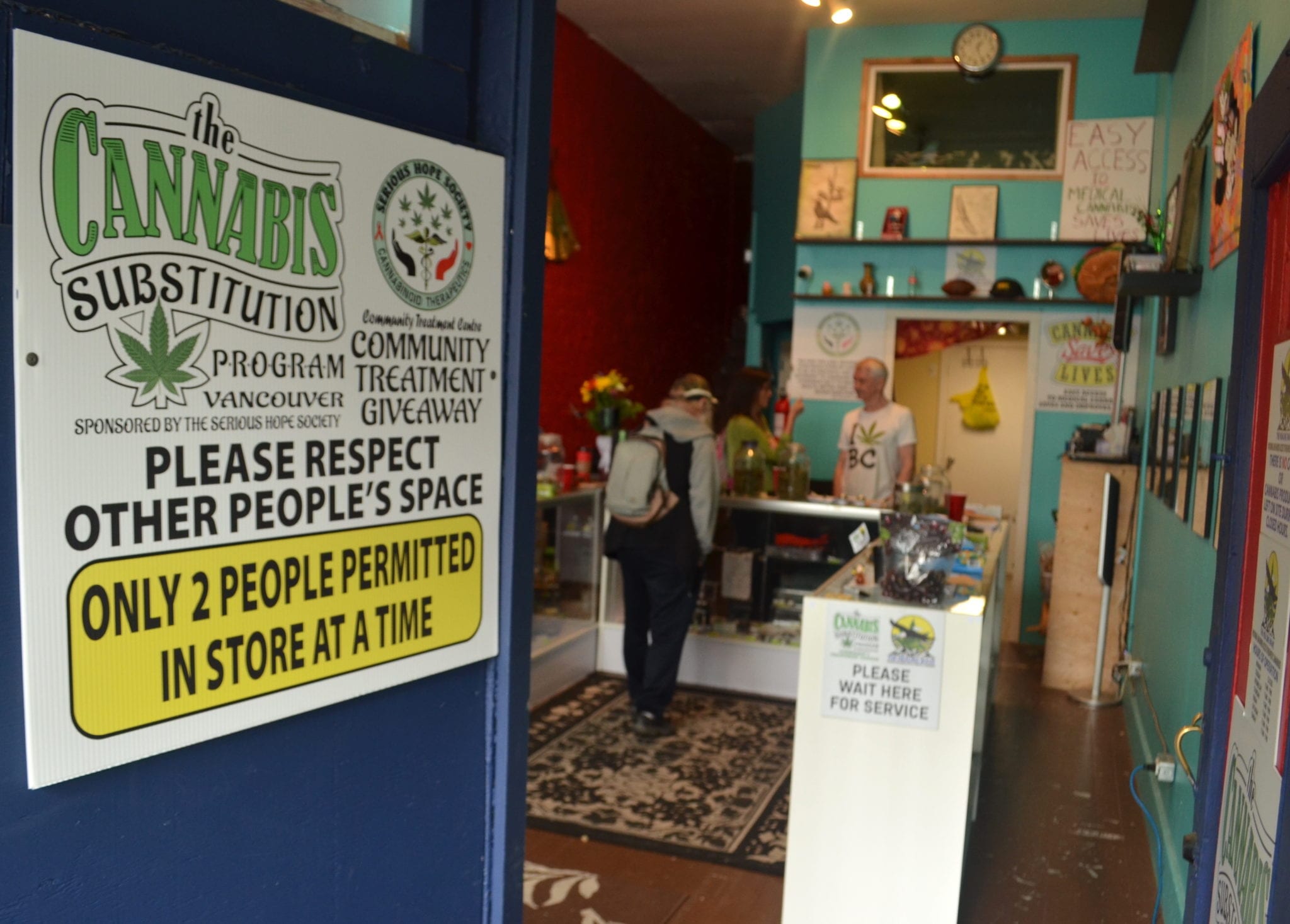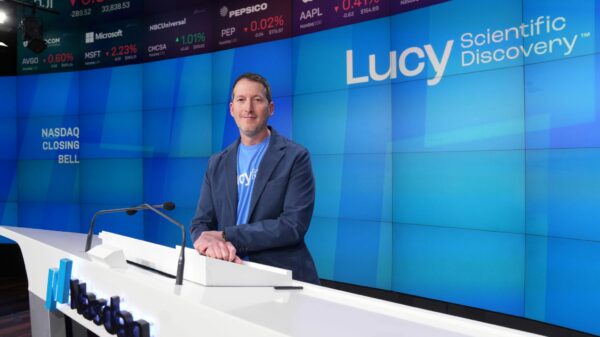An unregulated cannabis dispensary in Vancouver’s Downtown Eastside neighbourhood is asking the federal government to grant it an exemption from the Cannabis Act to keep its doors open.
People will die if low-barrier store the Healing Wave and harm-reduction initiative the Cannabis Substitution Project are forced to close, experts say.
Last week, Vancouver Coun. Rebecca Bligh and Coun. Jean Swanson added their voices of support for the illicit operation.
But Bligh says the City of Vancouver is unlikely to formally endorse the Serious Hope Society, the umbrella organization that runs both programs. Without backing from Vancouver the society is at risk of being shut down by city bylaw officers and the province while waiting for the federal exemption to be approved.
It’s a complicated issue with a simple concept at its core: High-potency cannabis edibles can help reduce how much, or how often, people use more dangerous drugs like opioids — a powerful harm-reduction tool during an ongoing overdose crisis.
As B.C.’s illicit drug supply has been poisoned with fentanyl, people who use cannabis instead of opioids should be seen as trying to protect their own lives, says M-J Milloy, a research scientist at the BC Centre on Substance Use and the Canopy Growth professor of cannabis science at the University of British Columbia.
“Research shows there are people in the Downtown Eastside who are trying to protect their health — trying to stay alive, quite honesty — by using cannabis,” Milloy says in a phone interview. “These are often folks who are trying to use cannabis instead of illicit opioids to treat their own pain, drug withdrawal, or many of the other things that drive them to use illicit opioids.”
Milloy backs the work done by Serious Hope founder Neil Magnuson. The organization fills an important gap for people who don’t have access to regulated cannabis, Milloy wrote in a letter of support for its federal exemption.

No where has been harder hit by the overdose crisis than the Downtown Eastside neighbourhood where Neil Magnuson works, says epidemiologist M-J Milloy. Submitted photo
“Without his service, I am confident that some of his clientele would be forced to turn to opioids from the fentanyl-contaminated drug supply to treat their chronic pain or address withdrawal, with potentially fatal results,” wrote Milloy. In just the first eight months of this year, the overdose crisis is responsible for 1,068 deaths in B.C.
The issue Vancouver has with the Serious Hope Society is that just about everything it does is illegal on a municipal, provincial and federal level. It doesn’t have a business licence, it sells illicit cannabis from a storefront and doesn’t ID customers. To enforce the law, the city is pressuring the society’s landlord to evict them or face persecution.
But the society’s programs and products are saving lives every day, says cannabis lawyer John Conroy, who is representing Serious Hope in its application for a federal exemption.
That’s what you call a defence of necessity, Conroy says. Magnuson’s initiatives are not legal — but it is necessary to break or bend the “lesser evil” laws around regulated cannabis to address the “greater evil” of the ongoing and increasing number of overdose deaths.
The society is applying for an exemption under section 140 of the Cannabis Act to sell medical cannabis from a storefront, which can be granted by Health Minister Patty Hajdu as the head of Health Canada, Conroy explains. The application was submitted Sept. 16, 2020, but it’s anyone’s guess when the government will respond because of Covid-19, he adds.
The application asks for Magnuson, his staff and the Serious Hope Society to possess, sell and donate cannabis — both licit and illicit. It also asks for society members to be able to carry licit and illicit cannabis up to 30 grams, unless medically approved for more, and for protection for his suppliers.
On Friday, Bligh and Swanson wrote a letter to their municipal, provincial and federal counterparts, voicing support for the exemption while calling on government to get behind Magnuson’s work.

Neil Magnuson says if the federal exemption is approved, he’ll consider cannabis finally legalized. Photo by Michelle Gamage
The letter comes at a great time, Magnuson says, because he can use it as evidence in court to show he has municipal backing, and will likely have federal support soon, therefore avoiding eviction.
While Bligh entirely supports Magnuson’s work, as a councillor she is unable to intervene and prevent the society’s potential eviction or closure, she says. City staff and bylaw enforcement officers follow federal jurisdiction on medical cannabis, so it’s up to Ottawa to grant the exemption that could guarantee the society’s future, she told Mugglehead over the phone.
Once a federal exemption comes through, the city’s licensing board as well as his landlord will no longer be trying to shut them down, according to Magnuson.
“One of these days they’ll give me a piece of paper with a signature on it for me and my suppliers — and at that point I’m going to cry like a school boy, I’ll tell ya. We’ll have legalized cannabis in my opinion,” he says.
Magnuson’s harm reduction initiative kicked off with the Cannabis Substitution Project, which started handing out donated edibles in 2016 when Vancouver declared the overdose crisis a public health emergency.
Read more: Vancouver cannabis harm reduction project finds a home
Magnuson says the Vancouver Police Department and the provincial government, which understood edibles were a small but powerful tool to help battle the toxic supply of street drugs, were supportive of the CSP.
But the twice-weekly charity required people to line up for hours, which can be physically challenging, unpleasant in bad weather and attracted drug dealers, which was concerning for volunteer safety, Magnuson says.
In June 2019 he saw his chance to build a permanent location.
At the time, Bligh was asking city council to reconsider the exclusionary zone blocking cannabis retailers from opening in the Downtown Eastside. The city created the exclusionary zone in 2015 to limit the sale of weed to vulnerable people, but blocking cannabis had pushed people towards opioids, she argued.

The Healing Wave sells potent flower for $1–$6 a gram to compete with the price of more harmful drugs sold on the street just outside the store, Magnuson says. Photo by Michelle Gamage
Her motion called for the city to allow “well-considered” retail exceptions in the neighbourhood. It also asked city staff to make a list of recommendations for how Vancouver could enable low-cost, legal medical cannabis sales for people wanting to use cannabis as a substitute for other dangerous drugs but can’t access the regulated market. The proposed sales would support ongoing harm-reduction research.
Council passed the motion with unanimous support and Magnuson got to work.
However, Bligh says city staff have not yet been able to prepare the list.
This summer, Magnuson opened the Healing Wave at 157 East Cordova St. anyways.
Operating out of the same location, the Cannabis Substitution Project hands out 420 milligrams of free cannabis to 250 registered members every four days. Staff collect data on what products people use to self-medicate various ailments. There is a waiting list of over 150 people for the program, but as it runs off donations there are only so many people they can take on.
The retail side of the store sells a full selection of products without barriers presented by regulated sources.
Read more: Multiple barriers exist for people trying to access weed as a harm-reduction tool: study
While you do need to become a member to shop there, membership is free and doesn’t require ID. Grams of potent flower sell for $1–$6 and capsules are priced below what it costs to buy heroin on the street.
Magnuson says it breaks his heart to have to turn people away from the CSP. “We have people coming in every day who are in trouble,” he says. “We turn a lot of people away, put them on the list, tell them maybe a couple months from now.”
There’s a plan in the works to get that waiting list down to zero. The BC Craft Farmers Co-op endorses the CSP and has asked the federal government to be able to donate their excess crops instead of destroying them.
Top image of Neil Magnuson and the Serious Hope Society and Healing Wave Cannabis Substitution Project. Photo by Michelle Gamage
michelle@mugglehead.com
@missmishelle














